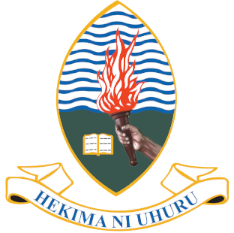The Department of Computer Science (DoCSE) is one of three units forming the College of Information and Communication Technologies (CoICT) of the University of Dar es Salaam (UDSM). The other two are the Department of Electronics and Telecommunication Engineering (ETE) and the Centre for Virtual Learning (CVL).
The DoCSE was established in July 1999 under the then Faculty of Science (FoS). Since its establishment, the department was housed under the Mathematics Building at the UDSM Mwalimu Nyerere main campus and later, in 2005, it expanded its premises covering part of the Central Science Workshop building. Due to the rapid developments of ICT, in 2005 the UDSM decided to establish a fully-fledged Faculty of Informatics and Virtual Education (FIVE). The DoCSE became one of FIVE’s core units offering the following regular programmes:
- Bachelor of Science in Computer Science
- Bachelor of Science with Computer Science
- Master of Science in Computer Science
- Master of Science in Health Informatics
- Diploma in Computer Science
- Certificate in Computer Science
Since it was established, the department has been increasing the number of academic programmes as well as to updating the existing programmes to cope with the changing market demands and the rapid pace of change and advancement of the computing fields. For example, in 2002/2003 the department reviewed the curricula for the diploma, undergraduate and postgraduate programmes. Curriculum review was done again during the execution of the 2008/09 to 2012/13 Five Year Rolling Strategic Plan (FYRSP), resulted in major changes of courses and contents for the undergraduate programmes. Also, it was found that the BSc with Computer Science programme was unfocused and not clearly understood by stakeholders, hence it was dropped and replaced by a new programme of BSc in Business Information Technology (BSc in BIT).
At the postgraduate level, in addition to the general MSc in Computer Science programme, the department established new MSc programmes in 2007, 2016 and 2018 which are MSc in Health Informatics, Data Science, and Information Systems Management, respectively. Processes are underway to establish Postgraduate Diploma in Information Technology, Postgraduate Diploma in Computer Science programmes, and MSc in Network Security. The postgraduate diploma programmes are intended to prepare candidates who would want to advance their careers in computing and ICT fields for doing masters or PhD degrees, but they lack the necessary entry requirements.
This means the department has continuously structured its programmes to make them more responsive to the dynamics of the discipline of Informatics and marketable. It is striving to enhance research quality and outputs and its relevance to the socio-economic needs of the country and the related context in sub-Saharan Africa. Furthermore, the department runs multidisciplinary corroborative research projects and establishes collaborations in the industry through coordinated consultancy activities and contracted research initiatives.
Despite the increase in programmes, there has been an increase in the number of students enrolled in each programme. For example, the number of students in the academic years 1999/2000 was 182; 2000/01 was 165; 2001/02 was 200; 2002/03 was 255; 2003/04 was 316; 2004/05 was 406, and 2020/2021 was 1,073 among them 600 are doing undergraduate programmes, 253 are doing postgraduate programmes, and 220 are doing non-degree programmes.
In line with the changes of its programmes and professional services provided by the CSE department, it has made a significant change in building the capacity of its academic staff. For example, in 2008 the department had only 14 permanent academic staff of which only 3 had PhD degrees; 7 had master’s degrees and among them, 5 were pursuing doctorate degrees, and 3 had bachelor’s degrees and were all pursuing master’s degrees. Therefore, the department had only 10 staff on duty and depended heavily on part-timers to lower the teaching load. Since then, the number of academic staff has been increasing through new recruitments and supporting existing staff to study postgraduate degrees. By April 2021, the DoCSE had 23 staff with PhD degrees, 22 with MSc degrees, and only 2 with BSc degrees. Among those with MSc degrees, 16 were at various stages of PhD studies in and outside the country. A full list of staff is available under the STAFF menu on this website.
